I have argued for more than 20 years that building and sustaining a powerful entrepreneurial brand is critical if a venture is to survive, grow, and endure in a complex and competitive marketplace. Moreover, a new venture has a relatively short time frame in which to establish its brand. If it misses this critical window of opportunity, it is very likely to fail. Entrepreneurs must focus on creating brands that clearly communicate the value desired by the customer as well as reinforce the intended position the entrepreneurial firm wishes to occupy in the market. Importantly, the brand must be consistent and sustained over time.
One of the most basic definitions of a brand is that it is something of “value” for both the customer and the company. At a practical level, a brand embodies your offer of value—your promise—to the customer. Ultimately, a brand is a blend of what you say it is, what others say it is, and how well you deliver on your promise—from the customer’s perspective. Finally, a brand is a powerful asset that must be carefully developed and managed.
For you and your venture, the brand you select is important because it can set you apart and truly differentiate your venture (and its products/services) from your competitors. But branding brings other benefits to your venture. First, branding can be an integrative tool for the entire venture. For example, the branding process, even the simple naming of your business, forces you to consider very carefully the core “value” you will create and deliver to your key customers. In addition, branding also helps you sharpen your business model (how you will make money and from whom you will make it). Second, branding increases the chances of acquiring your initial set of customers in the early stages of your venture. And, of course, branding will help solidify customer loyalty to your venture in the later stages. Third, branding can increase your access to suppliers and improve your chances of channel support. Fourth, branding can increase access to new venture capital.
While a brand is extremely important to you and your venture, it might be argued that customers, in fact, may benefit most from branding. Recognizing competing products by distinctive branding allows customers to be more efficient shoppers. Consumers can recognize and avoid products with which they are dissatisfied while becoming loyal to other, more satisfying brands. Strong brands reduce customers’ perceived risk when purchasing and can increase their trust with the brand. Finally, strong brands also help the customer visualize and better understand the product or service.
A good brand will possess a number of important characteristics. Keep these characteristics in mind as you begin the branding process. For example, a good brand has the following qualities:
- Effectively communicates the distinctive value you wish to offer the customer
- Is “relevant” to the customer
- Reinforces the company’s intended positioning in the marketplace
- Is consistent and unifying
- Is easily understood by your customers and your employees
- Can be sustained over time
You should consider these characteristics as you begin to ponder your possible brand(s) for your venture. It is clear that brands lacking the above characteristics are likely to be weaker brands that may not survive in a crowded and competitive marketing environment. My advice: test your brand with your potential customers – find out what they think and how they feel about your brand concept.

Frederick Crane serves as a Senior Project Manager for the International Council for Small Business (ICSB).
Dr. Crane is an Executive Professor of Entrepreneurship & Innovation at the College of Business at Northeastern University; Former Editor of the Journal of the Academy of Business Education; and co-founder of Ceilidh Insights LLC – an innovation management training, intellectual property consulting
and consumer insight company. He was formerly a professor of marketing and entrepreneurship at the University of New Hampshire and a Chair and Full professor at Dalhousie University.
At Northeastern, he developed the graduate new venture creation course; the undergraduate innovation course – which is now taught campus-wide; and developed the online MBA course on innovation and enterprise growth. He also serves as the Faculty Advisor for the Private Equity and Venture Capital Club. Every semester at least one of his teams from his new venture creation course goes on to commercialize a business.
Citation of Article:
Crane, F. (2021, August 25). The Entrepreneurial Journey Part 4 – Do You Have the Right Brand? The International Council for Small Business, Small Business Gazette. https://icsbstg.wpenginepowered.com/the-entrepreneurial-journey-part-4-do-you-have-the-right-brand/



